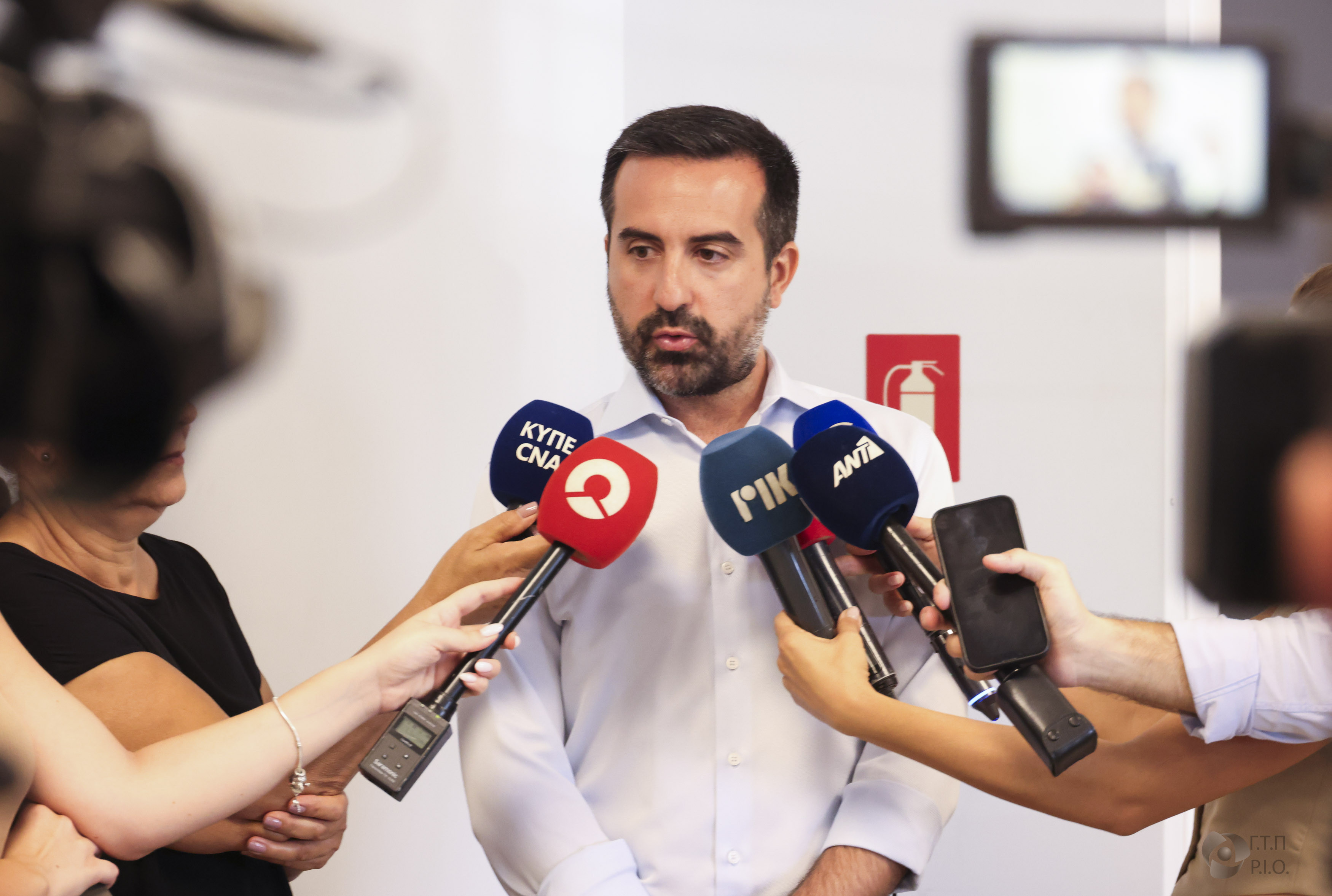Justice Minister Marios Hartsiotis, Deputy Migration Minister Nicholas Ioannides and Limassol mayor Yiannis Armeftis discussed coordinated measures to tackle delinquency and crime on Tuesday.
“The results of the effort in Nicosia were positive and it was decided to continue the effort in both Larnaca and Limassol,” Hartsiotis said, referring to earlier measures implemented in the walled city of the capital.
He added that the meeting was part of a series of similar meetings initiated by the ministry, with the most recent one held one and a half months ago, focusing on the situation in Larnaca, after which several actions were taken.
“This is the first time all relevant agencies are working together to combat every form of crime and delinquency,” he said, emphasising that criminality also encompassed illegal employment, unlicensed work, the unlawful operation of premises and various other issues.
“Our role is to take measures, always working with the justice minister and the police to address these issues,” Ioannides said following the meeting.
Some of the issues, Ioannides said, involved foreigners and needed to be addressed accordingly.
However, he clarified that living in illegal housing arrangements did not make migrants illegal per se, highlighting the responsibility of landlords providing such housing or illegally employing migrants.
“We have created a mechanism with the justice ministry for the exchange of information, so that foreigners who demonstrate delinquent behaviour have their files examined, because these people are not above the law,” he said.
Ioannides stressed that in cases involving migrants, in addition to the penalties provided for in the legislation, measures to reject asylum seekers and “revoke any asylum status they may enjoy” could be applied.
“I believe that the local authority must cooperate with the central state to address these issues,” Limassol mayor Yiannis Armeftis said, emphasising that the feeling of security of citizens was “linked to the quality of life”.
Armeftis said that the security issues Limassol occurred particularly in the centre of the city, however, other neighbourhoods were also problematic.
“We have the issues of destruction in public parks, on public property, the problem of illegal occupation in many buildings by illegal immigration, the issues in general in relation to entertainment venues, drug trafficking, etc.,” he said, reiterating that “these are issues that without cooperation we cannot bring about proper results.”
Asked whether the issues Limassol faced were similar to those faced in Nicosia, Armeftis pointed to the varying characteristics of the cities, stressing that “Limassol is a multicultural city” which did not display strong signs of ghettoisation, “as may be observed in other cities”.






Click here to change your cookie preferences